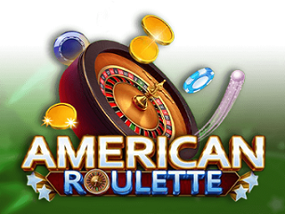Best Offshore Online Casinos For US Players in Offshore Casinos offer legal play for players from the United States of…

Best Offshore Online Casinos For US Players in 2026
Offshore Casinos offer legal play for players from the United States of America and worldwide. These casinos are fully licensed; however, they are based offshore and therefore, US regulations and rules do not apply.
This means players in the United States can play games on legit casino sites. Listed below are our top, most trusted offshore casinos.
#1 Offshore Casino in 2026
Safe & Secure for US Players
Huge Promotions and Quick Payouts
#1 Offshore Casino in 2026
Safe & Secure for US Players
Huge Promotions and Quick Payouts
Key Takeaways
♠ Offshore casinos are legal to play in the United States
♥ Offshore casinos open up opportunities to use cryptocurrency as your chosen payment method
♦ Only casinos that pass our own review criteria and are verified as trustworthy by real players make it to ur recommended list.
♣ Offshore casinos offer bigger bonuses and more rewarding loyalty schemes than their US-regulated counterparts.
♠ Regular audits and the use of Random Number Generators (RNGs) ensure that offshore casinos offer fair play and cannot influence the outcome of any spin, roll, or game.

Best Offshore Online Casinos for 2026
Get exclusive free spins, big match bonuses, and fast crypto payouts from trusted offshore casinos.
Editor’s Spotlight






Why These Casinos?
Bonus Explorer
Free Spins
Match Bonuses
BTC Friendly
Are offshore casinos legal for US players?
Free spins or match bonuses — which is better?
How fast are crypto withdrawals?
Do I need KYC if I deposit with crypto?
Free Casino Games


Get ready for the ultimate thrill! Slot games, the beloved casino classics, are your ticket to non-stop fun and thrilling prizes. They feature spinning reels with various symbols, and their mix of simplicity, entertainment, and the chance to win prizes makes them appealing to a wide range of players. Spin the reels, chase your luck, and win big. Start spinning now!

Join the excitement of Roulette, the classic casino game dating back to 18th-century France. Spin the wheel, predict the ball`s final stop, and embrace the thrill of chance. With its numerous betting options, Roulette offers endless fun. Place your bets and spin the wheel now!

Step into the world of Blackjack, also known as 21, a card game celebrated in casinos worldwide. It`s the perfect blend of skill, strategy, and a dash of luck. Your aim? Outsmart the dealer with a hand value closest to 21, without going over. Ready to test your skills?

Experience the high-energy thrill of Craps, the fast-paced dice game loved by casino-goers. Gather around the table, bet on dice outcomes, and ride the wave of chance and strategy. With a wide range of betting options, Craps guarantees an exhilarating time! Ready to roll the dice?
Newest Free Casino Games
The online gambling industry has boomed exponentially over the past decade. There are now countless opportunities for entertainment and profit presenting themselves to players. However, as with any burgeoning business sphere, legislation is always present. As a result, offshore casinos are now witnessing a boom of their own.
In the complex world of online gambling, particularly in the United States, the landscape players are faced with varies from state to state. The location of the player looking to place a bet is a key consideration. Federal and state laws surrounding betting differ depending on the physical location where the bet is placed. A fragmented legal gambling framework in the USA has pushed many players to seek alternative means when it comes to online betting. The advent of the offshore casino has boomed as a result.
Essentially, offshore casinos have been an enormous success in the global betting market as they operate outside of the jurisdiction and laws of the country where they are based. This allows them to accept online play from different countries. A player’s eligibility is no longer based on their physical location, but on that of the online offshore casino.
Inevitably, some offshore online casinos are viewed as a bit of a loophole by some users, with plenty of questions around their legality and legitimacy. However, there are many benefits to using an offshore casino. At the same time, regulated casinos continue to hold their place within the market too. Offshore casinos offer a range of benefits. Many of our players prefer to use them thanks to higher bonuses and the ability to use cryptocurrency.
For clarity, the use of offshore casinos is legal, hence why they can operate online. Provided players meet all of the age verification requirements, offshore casinos are a perfectly viable option for our players. As with any online industry, due diligence is key. Players must be vigilant when assessing the legitimacy of a specific offshore casino site. Just as they should be when betting through any regulated platforms.
This comprehensive offshore casino guide provides an analytical view of offshore casinos. Assessing the intricacies of their legal status, the safety and security of specific offshore casino sites. We’ll consider the key differences between offshore casinos and regulated ones.
In addition, this offshore casino analysis will delve deeper into some of the challenges facing players when using offshore online casinos. We will assess the differing payment methods and strategies available. We’ll also point players in the right direction when it comes to the best offshore casinos on the market.

What Are Offshore Casinos?
By definition, offshore casinos are internet-based gambling platforms that operate under licenses issued by foreign jurisdictions.
These entities are physically located and legally registered outside the country in which they are being played. The term offshore refers to the platform’s legal and operational separation from the country in which they are being played, both geographically and jurisdictionally.
Offshore casinos do have a broad global footprint. Players from many different countries use offshore gambling platforms as a way to negate any legal issues in the country from which they are playing. Interestingly, the concept of offshore casino betting originated in the USA. The term offshore denotes any betting or casino service that is not registered or regulated under U.S. federal or state gambling laws.
These services function beyond the direct oversight of American authorities. Instead, it falls under the jurisdiction of foreign regulators in the country in which the casino is registered.
This status allows them to provide gaming services to U.S. residents in states where local laws may prohibit or limit domestic options.
What are the differences between offshore casinos and regular US casinos?
With the global standing of betting continuing to grow and more people than ever before indulging in casino and gambling activities, choosing the best platform to bet with is a key consideration.
Understanding why a bettor would use an offshore casino is an essential consideration for players as they look to maximise their betting budgets.
Here is a look at some of the key differences between offshore casinos and regulated casinos in the US:
| Aspect | Offshore Casinos | US-Regulated Casinos |
|---|---|---|
| Legal Status in the US | Offshore casinos are not explicitly legal or illegal for individual U.S. players. As they operate outside of the US, they are not under the jurisdiction of federal law in the United States. Players don’t have the protection of complete legal clarity when betting offshore, but they can access a wider variety of betting platforms. | U.S.-regulated casinos are entirely legal and licensed within specific U.S. states. Their operations are sanctioned by state legislatures and subject to federal and state oversight, offering complete legal clarity to operators and players. |
| Jurisdiction | As the name suggests, offshore casinos operate under the laws of foreign nations. These platforms are subject to the rules of their host country, which may differ significantly from U.S. regulatory frameworks. They do not report to U.S. authorities or adhere to U.S. consumer protection laws. | Domestic casinos operate under the jurisdiction of U.S. state governments, which vary from state to state. These casinos must comply with strict local regulations, and state gaming commissions closely monitor their operations. |
| Licensing Authorities | Each offshore casino differs in its licensing protocol, depending on the country in which it is licensed. The rigor and reliability of these bodies vary from country to country, with some offering strong oversight, while others have minimal enforcement power. | While some licensing regulations differ hugely by state, the US licensing authorities must all work within the federal guidelines, too. These regulators have precise enforcement mechanisms, transparency requirements, and formal dispute resolution processes, which domestic casino operations must follow. |
| Regulatory Oversight | With regulations changing from country to country, oversight can be inconsistent when betting through offshore casinos. Players can struggle for legal recourse and customer protection, but this depends on the offshore casino being used. | Domestic casinos are regulated heavily, and oversight is strict, transparent, and enforceable. Regulators require casinos to follow rules regarding fairness, security, responsible gambling, and customer protection. Complaints can be escalated through formal channels, and players have comprehensive legal protection. |
| Enforcement of Rules | Some offshore platforms rely on self-regulation or voluntary compliance with vague operational guidelines. However, increased footfall in the market has seen more offshore casinos enforce gambling regulations, which hold up in their country of operation. | As with any industry, rules are legally binding, and violations can result in fines, license revocation, or criminal charges if violated in the United States. In addition, U.S. casinos are held accountable for breaches of conduct, depending on the rules in each state. |
| Player Protections | Limited. While some reputable offshore casinos are Limited. While some reputable offshore casinos may follow best practices, there are no guaranteed protections for users. Fund security, data protection, and dispute resolution vary widely, and due diligence is key when selecting an offshore casino platform. | Strong. Player funds are often held in segregated accounts, disputes are formally handled, and mandatory cybersecurity regulations protect all personal data. |
| Tax Compliance and Reporting | Offshore casinos do not report player winnings to the U.S. IRS. It is the player’s responsibility to declare earnings, although enforcement is difficult. | Many U.S. casinos automatically report player winnings to the IRS. Players also receive tax forms to aid in compliance. |
Common Offshore Gambling Jurisdictions
Countries outside of the US can offer betting platforms to American citizens. Provided they operate within the legal gambling framework of their own country.
More and more betting operations are becoming wiser to the boom in the betting market in the US. As a consequence, the offshore gambling fraternity is growing worldwide.
Below are three of the most recognized jurisdictions that issue gambling licenses to offshore casino operators. With all three countries well-versed in the intricacies of offshore casinos, particularly for US players:

- Malta: Home to the Malta Gaming Authority (MGA), known for its robust regulatory standards, comprehensive compliance audits, and consumer protections. MGA-licensed casinos enjoy high credibility and a strong reputational standing amongst American gamblers.
- Curacao: Having long been the go-to offshore betting platform for American players, Curacao has one of the most accessible licensing frameworks globally. While it is seen to be less rigorous than some competitors, the Curacao eGaming authority still imposes baseline standards for fairness and operational integrity and is growing in legal stature.
- Gibraltar: Originally viewed as an offshore tax haven for players. Gibraltar has become a respected licensing hub with a strong reputation for regulatory oversight and legal clarity. Gibraltar licensed casinos are generally held in high regard within the industry and have plenty of legal standing, giving players relative peace of mind.
All three of these jurisdictions provide the legal infrastructure for casinos to operate globally, including serving players in the United States. Disputes inevitably are solved on a case-by-case basis, but they are resolved within the legal framework of the country in which they operate.
Licensing and Regulatory Frameworks

To legally offer gambling services, offshore casinos must obtain a license from a regulatory body in their country of registration. The licensing process typically includes the following:
- Verification of corporate structure and financial backing
- Audits of gaming software and payout algorithms
- Policies for anti-money laundering and responsible gaming
- Terms for player fund segregation to ensure withdrawals are honoured
The strength and reliability of these frameworks vary significantly depending on the issuing authority. This is why players are advised to prioritise platforms licensed in stricter jurisdictions and those that have a firm reputational standing within the industry.
Technical Infrastructure and Game Provision
Much like regulated sportsbooks, offshore online casinos rely on advanced software platforms to deliver a smooth and immersive user experience.
Key components of their technical architecture include:
- Gaming Software Providers: These include renowned companies like Microgaming, NetEnt, and Evolution Gaming. They supply the different online casino games and ensure fair mechanics through Random Number Generators (RNGs).
- Hosting and Servers: Most offshore casinos utilise international hosting services that support high-speed performance and uptime. Server locations may be situated in Europe, Asia, or the Caribbean, depending on the license and offshore casino being used.
- Security Features: Standard industry protocols such as 128-bit or 256-bit SSL encryption are employed to protect user data and prevent unauthorised access to betting sites, which is standard practice in the gambling domain worldwide.
Payment Processing Methods and Challenges

One of the more complex aspects of offshore casino operations is payment processing. Due to restrictions under U.S. federal laws such as the Unlawful Internet Gambling Enforcement Act (UIGEA), offshore casinos must rely on alternative financial channels to facilitate deposits and withdrawals.
Common methods include:
- Cryptocurrencies: Bitcoin, Ethereum, and other digital currencies are widely accepted, offering speed, anonymity, and minimal transaction fees.
- E-wallets: Services like Skrill, Neteller, and ecoPayz allow quick transfers without involving traditional banks and their associated regulations.
- Prepaid Cards and Vouchers: These options provide an additional layer of anonymity and are often used in conjunction with fiat-to-crypto exchanges by players.
Challenges in payment processing may include delayed withdrawals, foreign transaction fees, and occasional blocked transactions by U.S.-based banks. However, most offshore casinos are well-versed in payment processing, and if a platform is reputable, players can bet safely offshore.
Legal Landscape for US Players

As with any betting operation, understanding the legal framework in which a bet is being placed is key. There is considerable debate surrounding the legality of offshore betting.
Fundamentally, offshore betting is a legal activity in the US. Betting with an offshore platform does not fall under the jurisdiction of federal law.
However, there are some potential pitfalls out there for players. Specifically relating to the lack of legal protection players receive from betting offshore.
With the evolution of the betting industry in the US, understanding the legal landscape is a constant battle.
Here is an in-depth look at the legal landscape facing players when they bet with offshore providers:
Federal Law Overview
The federal legal environment is primarily aimed at controlling how gambling businesses operate rather than prosecuting individual users. However, federal law does play a central role in shaping the overall legality of online gambling in the U.S., and by extension, the operation and accessibility of offshore casinos.
The primary focus at the federal level is the prevention of illegal gambling operations. Particularly those that cross state lines or are involved in money laundering, fraud, or tax evasion. While federal authorities have historically focused enforcement efforts on operators, offshore casinos that cater to U.S. residents can still face scrutiny if they are deemed to violate U.S. laws.
That said, offshore operations are not directly answerable to federal law regulations in the US. They have to comply with rules set out by the gambling authority in the country in which they are based.
Wire Act Implications
The Federal Wire Act of 1961 was initially created to combat organised crime by prohibiting the use of wire communications to facilitate betting across state lines. For decades, it applied strictly to sports betting. Still, in 2011, the Department of Justice issued a legislative clarification clarifying that the Wire Act only applied to sports betting, not other forms of online gambling.
However, this interpretation has been challenged multiple times. In 2018, the Department of Justice attempted to expand the act’s reach again to include all types of gambling, sparking legal battles and confusion.
State legislation changes from county to county in the US, too. This adds another layer to the standing of the Wire Act in the United States, and offshore betting platforms operate primarily in this legal grey area.
With the global world now becoming far more connected, the relevance of the Wire Act is undoubtedly waning. Still, it is a consideration all casinos must abide by, whether they are run domestically or as an offshore enterprise.
UIGEA Payment Processing Restrictions
Protection of players in the online gambling sphere has manifested hugely in recent years. As a result, the legality of casino operations is far more transparent than it ever has been.
The Unlawful Internet Gambling Enforcement Act (UIGEA) of 2006 specifically targets the financial side of online gambling. It prohibits U.S.-based banks and financial institutions from knowingly processing transactions connected to unlawful internet gambling.
Although UIGEA does not criminalize gambling itself, it places significant pressure on offshore casinos by cutting off access to traditional banking networks. This law is the primary reason why many offshore platforms favor alternative payment methods such as cryptocurrency or international e-wallet services. U.S. players may find that credit and debit card transactions are often blocked when attempting to fund accounts on offshore platforms.
These restrictions are in place to protect players from losing money to fraudulent operations in the gambling sphere. While they can carry additional administrative requirements, they have become part of the offshore gambling landscape.
Interstate Gambling Prohibitions
U.S. federal laws make it illegal to facilitate gambling across state lines without proper authorization. This applies to sportsbooks, poker networks, and casino games that pool players or resources from multiple states.
Offshore operators generally function without such arrangements. Principally, they need to meet the requirements of the country in which they are operating. Not the laws set out by the United States.
However, prohibitions in each state surrounding the practice of gambling can provide issues for players, particularly when it comes to declaring any winnings collected.
State-by-State Considerations
Each of the 50 US states operates under differing gambling laws. Variety and change are inevitable across the United States. Offshore casinos operate firmly within this realm, as they don’t have to abide by the legislation set out by a specific American state.
Some states have embraced online gambling, while others continue to prohibit or heavily restrict it. States like Utah and Hawaii maintain blanket bans on all forms of gambling, including online platforms. Conversely, many other states allow a limited scope of activity under strict regulatory conditions.
The inconsistency of enforcement means that players may face little risk in some jurisdictions and greater scrutiny in others. Some states actively pursue unlicensed operators, while others are more lenient or lack enforcement resources.
All of which translates into an open marketplace, where players can access the best betting platforms for them, including offshore casinos.
US States with Regulated Online Gambling
A growing number of states have legalized and regulated online gambling. Creating a clear legal pathway for residents to participate in games of chance or skill via internet platforms. However, there remain a few states that continue to uphold a blanket ban on all gambling activities.
Here is a table focusing on some of the key states in the US and how they look to utilise and regulate online gambling:
| State | Online Casino Gambling | Online Sports Betting | Legal Status Summary |
|---|---|---|---|
| New Jersey | Legal and regulated | Legal and regulated | One of the most developed markets; governed by the NJ Division of Gaming Enforcement. |
| Pennsylvania | Legal and regulated | Legal and regulated | Comprehensive online gambling laws including casinos, poker, and sports betting. |
| Michigan | Legal and regulated | Legal and regulated | Full spectrum of legal online gambling options, including tribal and commercial operators. |
| Delaware | State-run and legal | Legal (limited) | Online gambling is operated by the state lottery system; limited private market presence. |
| West Virginia | Legal and regulated | Legal and regulated | Offers legal online casinos and sports betting through licensed operators. |
| Nevada | Casino games not allowed | Legal and regulated | Online poker and sports betting are allowed; online casino games remain prohibited. |
| New York | Not legal | Legal and regulated | Online casino gambling not yet legal; sports betting permitted through licensed operators. |
| California | Not legal | Not legal | No legalised online gambling: strong tribal casino influence complicates regulation. |
| Texas | Not legal | Not legal | Strict anti-gambling laws: offshore gambling operates in a legal grey area. |
| Florida | Legal status in flux | Legal status in flux | Legal challenges surrounding tribal agreements have created uncertainty. |
| Illinois | Not legal | Legal and regulated | Sports betting legal online; casino-style games remain unregulated. |
| Utah | Completely banned | Completely banned | No legal gambling of any kind; highly restrictive gambling laws. |
| Hawaii | Completely banned | Completely banned | Online and land-based gambling prohibited entirely under state law. |
Legal Gray Areas and Uncertainties
As the table above demonstrates, the state-by-state approach to gambling legislation changes massively depending on the county line.
Some states have also not passed explicit legislation for or against online gambling. This leaves players and offshore operators in a legal limbo. While it may not be illegal for players to use offshore casinos, the lack of consumer protections, tax reporting, and enforceability of winnings presents significant risks.
In such scenarios, law enforcement agencies typically prioritise major violations, such as fraudulent activity or tax evasion, rather than prosecuting individual gamblers. Nonetheless, the legal ambiguity underscores the importance of exercising caution when operating with offshore casinos.
Legal Risks for Players
Offshore casinos may operate differently in terms of regulation, but they also carry a unique set of risks for players. Due to the nature of how offshore casinos are set up, players using them can expose themselves to particular legal vulnerabilities.
These risks may include:
- Payment – As a bet is placed in a different country, disputes and payment enforcement are no longer under the umbrella of US federal or state gambling laws. Most offshore casinos are reputable and ensure payments to players, but it can be difficult for some players to enforce payment of winnings due to jurisdictional limitations.
- Legality – In states where gambling is banned, players could find themselves facing legal issues if they violate state-specific gambling laws. Problems tend to present themselves surrounding the declaration of winnings and any potential taxation knock-on effects.
- Protection – As players are not placing a bet under the regulations of the US, they may lack legal protection in the event of a dispute. Players are operating under the legislation set out by the country in which the offshore casino operates, and some players can experience compromised consumer rights in cases of disputes or fraud.
Offshore casinos have become accomplished and reputable in the main, with players able to do their research on the legitimacy of each casino relatively easily. However, it is crucial to consider that players don’t have the same legal protections afforded by domestic regulation when using offshore sites.
Importance of Legal Consultation
Given the complex and evolving legal environment surrounding offshore casinos, players are strongly encouraged to consult with an attorney should they encounter any issues in the offshore sphere.
State-specific rules and restrictions, potential liabilities, and key considerations are always recommended for players, especially if engaging in high-stakes activities with offshore platforms.
As with most financial situations relating to gambling, legal consultation can help playersgain a better understanding when seeking additional knowledge on any instances that arise.
Offshore Casino Safety and Security Considerations
As outlined, the legality of offshore betting is dependent on the country where the bet is placed. Still, there remain plenty of safety and security considerations at play when offshore gambling.
Historically, offshore betting sites were viewed as a potentially murky world for players, but the increase in exposure and regulatory activity has made it a viable option for players. However, much like the regulated market, being responsible and diligent is essential for players, regardless of their betting goals.
Licensing and Regulation Quality
Offshore casinos operate under licenses issued by jurisdictions outside the United States and are therefore answerable to the legal betting framework in the country in which they operate. There remains a considerable variation from country to country in terms of regulation quality, and players are encouraged to seek out as much information as possible before betting with a specific operator.
Understanding the differences among these licensing bodies is critical for assessing the legitimacy and safety of an offshore gambling platform, regardless of the betting budget in play.
Comparison of Offshore Licensing Authorities
Offshore betting sites remain present in the United States due to the differences in state legislation surrounding gambling. Pros and cons are inevitable with every offshore licensing authority, and here are some of the most common operators of offshore gambling in the US market:
| Licensing Authority | Regulatory Oversight | Player Protection |
|---|---|---|
| Malta Gaming Authority (MGA) | Regular audits, strong compliance requirements, and enforcement of protocols | Enforces responsible gambling tools and protection of player funds |
| Gibraltar Regulatory Authority (GRA) | Continuous compliance monitoring and data laws aligned with EU regulations | Promotes transparency, data security, and responsible operator conduct |
| UK Gambling Commission (UKGC) | Among the world’s strictest gambling regulators | Prioritises fairness, player safety, and responsible gambling practices |
| Curaçao eGaming | Minimal regulatory intervention and basic licensing criteria | Limited player protections and minimal dispute resolution mechanisms |
| Kahnawake Gaming Commission (Canada) | Basic operational checks and initial licensing standards | Some safeguards in place, but not as extensive as European regulators |
What Licenses Actually Protect

The regulation and development of online betting have given rise to a whole industry of gambling licensing, which is in place to protect both the consumer and the casino.
As with any license, it is in place to provide a minimum benchmarked standard that players must meet. This also enables players to place a bet safely in the knowledge that the casino they are using meets the minimum requirements to hold said license.
Here are some of the key functions of an online gambling license, regardless of which country it has been obtained from:
- Legitimacy – Ensuring a gambling site is legitimate is one of the most critical factors for any player. This can help avoid any complications in the future and ensure that players are operating within the relevant gambling regulations.
- Auditing Requirements – Risk is a key component of any casino operation, but there are protections in place for players in the gambling realm. Licensed operators use reputable gaming providers, maintaining a degree of consistency for players when betting, and they use industry-standard gaming methods such as random number generators (RNGs).
- Player Funds Segregation – Funds deposited by customers must be used within the realm of the gambling operation; they cannot be used to cover any operational costs incurred by the casino.
- Dispute Resolution – Licensed operations are required to resolve any disputes, and players should be able to access an external body to mediate unresolved complaints.
- Responsible Gambling Policies – Player safety has become a considerable part of the operation with online gambling, and licensed providers are required to offer accountable gambling tools such as deposit limits and self-exclusion programs.
Having a license is a fantastic indicator for players regarding the legitimacy of a specific casino; however, not all licenses guarantee the same level of protection. Research is essential for players regarding the gambling license each offshore casino has, and those without permits should obviously be avoided.
Red Flags in Licensing Claims
Being vigilant in any online sphere remains pertinent advice, but in the world of online betting, it feels even more prominent.
Offshore casinos may make misleading licensing claims about what they can offer to players, and gathering as much working opinion and experience as possible in the world of offshore casino is essential for players.
Red flags are present in any industry, but here are just a few of the key warning signs when it comes to offshore casino betting:
- No visible license number or clickable verification link on the website.
- Claiming multiple licenses without clarity about which one governs player terms.
- Fake or expired licenses may appear legitimate to untrained eyes.
- Unknown licensing jurisdictions with no online presence or regulatory authority website.
These red flags may not always be instantly visible, but they are key considerations, especially if using a new offshore betting provider.
In addition, verification has become relatively simple for players, as comprehensive reviews are easily accessible for any online betting platform – enabling players to avoid any glaring red flags.
Financial Security
Financial integrity is a cornerstone of any trustworthy gambling platform. Offshore casinos, operating outside of US banking and financial systems, must implement their own mechanisms to ensure that players’ funds are safe.
Player Fund Protection
The money with which players bet falls under the protective legislation of the player fund, which all regulated US casinos must abide by in order to operate. As offshore casinos develop, most reputable providers adhere to this function, but technically, offshore operators are not required, by US law, to keep player funds in segregated accounts.
Issues such as delayed or withheld withdrawals have been known to occur on occasion with some offshore casinos, but this is more due to the lack of credibility within the casino, rather than the fact that it is offshore. Some top-tier offshore casinos voluntarily segregate funds or carry insurance. As the market continues to develop, the best offshore casinos will need to meet the legislative requirements of the market to stay competitive.
Payment Processing Reliability
The accessibility and type of payment channels available with any company can be a strong indicator of financial reliability. Traditionally, offshore casinos haven’t always had the best reputation for payment processing reliability, but the increase in footfall in the market has brought about a marked improvement.
Most reputable offshore casinos typically support the following payment methods, all of which carry an industry-standard level of payment processing reliability:
- Cryptocurrency payments – Whether it be with Bitcoin, Ethereum, USDT or any of a multitude of crypto payment options, offshore casinos primarily use crypto for its speed, privacy, and low transaction costs.
- E-wallets – Now a staple in both regular and offshore casino markets, e-wallets carry plenty of credence within the casino market. Operators such as Skrill, Neteller, and ecoPayz have been operating in the online gambling sphere for over a decade.
- Bank Wire Transfers – The anomaly in the offshore betting industry is the bank wire transfer. It is a foolproof way of ensuring that funds get to and from their intended target. Still, international bank transfers can take a long time and often carry fees, which is not ideal in the high-octane world of offshore casino betting.
Withdrawal Challenges and Delays
Although offshore casinos are becoming increasingly proficient in terms of their operations, occasional issues present themselves for players.
The complexity of a casino existing offshore, with funds being brought into the operation internationally, carries plenty of administrative considerations, and players can sometimes find themselves on the wrong end of them.
Common withdrawal-related issues with offshore casinos include:
- Long verification periods – In comparison to regular casinos, offshore operations can take a long time to ensure players meet verification requirements. These protocols often exceed industry norms but are necessary to ensure fair and responsible gambling for all players with offshore casinos.
- High minimum withdrawal thresholds – Offshore casino betting has become a much more accessible vocation, but for a long time, it was seen as an activity for high-stakes gamblers only. A hangover of sorts does remain with some operators, who have maintained high deposit and withdrawal thresholds, but this trend does look to be turning.
- Difficulty withdrawing funds – Claiming winnings with offshore casinos can sometimes be a little sticky, particularly on a player’s first win. Provided all verification requirements are met, and the offshore casino operation is legitimate, players will receive their winnings eventually – even if it does take longer than regular casino operators.
As ever, players should review withdrawal policies before depositing with any offshore platforms and be aware of platforms with ambiguous or inconsistent terms.
Technical Security
Technical infrastructure is vital for maintaining trust and privacy with any gambling operation, and offshore casinos are absolutely no different in that regard. Investment in security and technology has seen a significant shift in the way in which most offshore casinos operate, and they can keep up with the trends in the regular casino market too.
SSL Encryption and Data Protection
Most credible casinos employ Secure Socket Layer (SSL) encryption to protect personal and financial data. This is very much an industry standard in the world of online gambling, and most reputable offshore casinos are on board with this trend.
Indicators of proper encryption on an offshore betting site include:
- A valid SSL certificate (https:// in the URL)
- Site seals from security providers like Cloudflare or DigiCert
Game Fairness and RNG Certification
As the online gaming and gambling industry has developed, the need for transparency from providers has heightened. Most offshore casinos are working well within this sphere, ensuring that their gaming technology meets industry standards and gives all players a fair chance of succeeding.
Reputable offshore casinos work with licensed software providers that subject their games to fairness testing. Certifications are awarded to games that meet said requirements, with the technology referred to as having ‘RNGs’ (Random Number Generators).
Here are some of the key indicators that an offshore casino is using RNG technology:
- Industry-standard operations are tested by third-party labs such as eCOGRA or iTech Labs, and reputable offshore casinos offer games within this sphere.
- Legitimate offshore casino games should be audited regularly with published payout percentages (RTP) visible on the casino’s homepage or website.
While it is not as explicit as if a casino cannot verify RNG testing, players should assume that games may not be fair. Offshore casinos are becoming much more developed, so players should be on the lookout for visible RNG and RTP statistics.
In addition, players can enhance their security and protection by using an offshore casino that has authentication and verification protocols already in place.
Simple identification systems such as two-factor authentication (2FA), login notifications, session tracking, and account lockouts after repeated failed login attempts have become the norm with most regular and offshore casinos.
Players cannot be too careful when divulging private information. This is especially true in the online gambling and gaming sphere. Utilizing a respected and reputable offshore casino can give players optimum peace of mind.
Offshore vs Regulated Casinos
Which is better, offshore or regulated casinos?
As mentioned, personal circumstances will always be the principal reason for a player to choose which of the two industries to operate in. Still, as the legislation and technology of the two spheres continue to develop, players will have to consider the broader picture moving forward.
Regulated US Markets
The regulation of US markets continues to be the key driver for players to bet with offshore casinos. With the state-by-state legal framework in operation, players need to find a way to place a bet, with offshore casinos filling that gap in the market.
Moves to federal legislation surrounding online betting and gambling have long been mooted. But at the time of writing, US betting markets remain governed by the state in which a specific bet is being placed.
Each US state has established its own regulatory framework. These are governed by state gaming commissions that oversee licensing, compliance, and consumer protection. These jurisdictions often partner with well-established gaming brands and certified software providers to ensure integrity and fairness.
By contrast, offshore casinos are answerable to the terms and conditions of their licensing agreement in the country in which they are registered. In the main, most gambling operations have a similar set of legislation in place. But they are not regulated in the same way as most US markets.
Player Protections in Regulated Markets
One of the main advantages of regulated online casinos in the United States is the extent of consumer protection provided. While each state can set out the intricacies of how online gambling works within its borders, there is a minimum set of standards that all operating casinos must meet.
Some examples of US-regulated casino protocols include:
- Mandatory identity verification
- Deposit and betting limits, encouraging responsible gambling
- Secure payment processing and data encryption
- State-level oversight for complaint resolution and dispute handling
- Independent auditing of game fairness and payout ratios
Offshore casinos are looking to keep up with this trend, but ultimately, are not directly answerable to any provider in the way that US casinos and sportsbooks are. That said, there is a clear push within the offshore casino industry to improve transparency with players, and licenses in countries such as Curacao and Malta cannot be obtained without specific legal gambling requirements being met.
Tax Implications and Reporting
Players who gamble in the US and use regulated online casinos are subject to both federal and state tax regulations. Winnings are considered taxable income and must be reported to the Internal Revenue Service, with players always encouraged to seek financial advice on how to declare any significant returns.
While this may be viewed as a disadvantage by some, tax reporting is part of the legal structure underpinning regulated gambling. Importantly, winnings from these platforms are protected by law, and players have access to formal legal channels in the event of disputes or delays.
All of which adds to the complex melting pot served up by online gambling in the US, which offers a serious level of protection but can overwhelm some bettors, especially those who are new to the world of online gambling.
Why Players Consider Offshore Options
Despite the presence of regulated markets in some states, many American players continue to use offshore casinos. These platforms are licensed in foreign jurisdictions, allowing them to operate outside US regulatory reach while accepting players from within the country.
Several factors make offshore casinos appealing, especially in states without legalised gambling. These include:
- Accessibility – The key driver in the offshore market is being able to place a bet from a state where online casino gambling is prohibited.
- Promotions – One of the most appealing aspects of betting through an offshore platform is the generous promotional offers and welcome bonuses on offer.
- Variety – Niches in the gambling market are much easier to find offshore, with a broader array of games and markets on offer, a key appeal for many high-stakes players.
- Big Money – Leading on from market variety, high-stakes gamblers have long preferred to use offshore betting providers, as they offer a more comprehensive offering for players with inflated betting budgets, and they put fewer limitations on wagering requirements and bonus terms.
Trade-Offs in Player Protection
There is no way to serve up a direct comparison of offshore and regulated casinos in terms of player protection. Each individual casino is different in its day-to-day operations.
However, here is a look at some of the key issues surrounding player protection when online gambling and how regulated and offshore casinos deal with them.
| Aspect | Regulated US Casinos | Offshore Casinos |
|---|---|---|
| Regulatory Oversight | Governed by state authorities with strict compliance requirements. | Varies widely depending on the jurisdiction. |
| Player Fund Security | Segregation of player funds often mandatory; protections in case of insolvency. | Fund segregation not always required; risk of operational misuse of player funds. |
| Dispute Resolution | Formal processes exist; regulators can intervene and enforce rulings. | Dispute resolution may be weak or non-existent, depending on the jurisdiction. |
| Game Fairness Audits | Independent testing agencies certify fairness; audits are routine. | Some offshore casinos lack regular third-party audits or RNG certification. |
| Responsible Gambling Tools | Enforced limits on deposits, time spent, and losses; self-exclusion supported. | Tools may exist, but are often optional and inconsistently enforced. |
| Transparency and Accountability | Operator details, licensing, and complaint procedures are publicly available. | Information may be vague, misleading, or difficult to verify. |
| Data Protection | Must comply with data security laws. | Standards vary; some follow best practices, others may neglect data protection. |
At the time of writing, offshore casino operators vary widely in quality and reliability. Some are managed by established companies with a history of fair play, while others may lack clear consumer safeguards. Players choosing to use offshore sites must exercise greater caution and conduct thorough research to verify licensing claims and service quality.
Access and Game Variety Differences
Offshore casinos are viewed as offering a wider variety of gaming options to players. Here are some of the key draws for US players for utilising offshore casino betting options:
- International slot machines and table games
- Live dealer formats from non-US studios
- Crypto-exclusive games and betting features
- Fewer restrictions on game mechanics and player limits
Traditionally, US-based online casinos are often more conservative in the games they offer, as they must comply with specific state-level gaming laws.
In some instances, certain games are banned outright, or only specific types of betting are permitted. Although more restrictive, these regulated platforms are subject to independent audits, fair play assessments, and secure infrastructure.
Depending on the aspirations of a specific player, offshore and regulated casinos offer a wide range of options. It is essential that a player understands the legal requirements to bet in their state before proceeding. From there, finding a casino that is reputable, secure, and enticing in terms of the games and functions it offers is key for any player – regardless of whether they are betting in the regular or offshore sphere.
Offshore Casinos Risk Management and Due Diligence
Whether a player is playing with offshore or regular casinos, risk management and due diligence remain a massive part of what a player is looking to achieve.
No matter how good a player may be at betting within a particular sphere, losses are part of the fabric in gambling, and the best players find ways to negate them and ensure they don’t manifest into dangerous losing spirals.
Offshore casino betting tends to carry a higher level of risk for players, as they are betting with institutions based outside of the USA. Still, as the offshore market develops, increased awareness of protocol and red flags grows.
Still, there are plenty of things for players to look out for when betting, even with the very best offshore casinos.
Research
One of the key developments in the offshore betting market in recent years has been the accessibility of each offshore casino and the growing number of reviews available to players.
Before engaging with any offshore casino, it is vital to establish a structured research framework, and information about the legitimacy of any offshore casino can always be accessed online. This involves defining a clear evaluation criterion and systematically verifying each element of it to ensure that a specific casino has the capacity to meet the needs of the bettor.
Some of the key issues to look out for when researching viable offshore casinos include:
- Licensing and regulatory status: Offshore casinos that are legitimate have to obtain a license from the country in which they are operating. If the license number or information is not visible, players should be very wary about engaging in any gambling operations going forward.
- Operational transparency: In a similar sphere, reputable offshore casinos are transparent about all of their operations from the outset. This can include licensing agreements, payout restrictions, and bonus fund terms and conditions. Players should always be vigilant when researching the intricacies of any online casino.
- Security measures: Offshore casinos are doing a very good job of mirroring the security measures being developed in the regulated casino industry. Consequently, players should be on the lookout for industry-standard security measures when picking the best offshore casino for them.
- User feedback and reviews: The increase in usership in the offshore casino market has made it easier than ever for players to find in-depth insight into the workings of any online casino. Using the feedback and reviews of fellow bettors to good effect is a smart way of researching an offshore casino and finding out which one best fits its purpose.
How to Evaluate Offshore Operators
Evaluating offshore casinos requires scrutiny of both the technical infrastructure and operational behaviour of the platform. As regulatory standards vary widely across jurisdictions, it falls to the player to take personal responsibility for identifying legitimate sites.
First, the casino’s licence is of primary importance. Players should take note not only of the licensing authority but also confirm its authenticity via the regulator’s official website. Some operators may falsely claim licences or display expired credentials, and being as vigilant as possible is key.
Secondly, the consideration of game provider partnerships is often a key indicator as to the legitimacy of a specific offshore casino. Trustworthy casinos tend to partner with established software developers such as NetEnt, Playtech, or Evolution Gaming to ensure they offer the best possible product to their customers. These partnerships indicate compliance with recognised fairness and random number generation standards and enable players to bet safely in the offshore domain.
In addition, the depositing and withdrawal systems offered by offshore casinos are always a huge gauge for players, as only verified operators will be happy to associate themselves with offshore casino sites. From cryptocurrency providers to e-wallet services, ensuring bona fide and reputable payment methods are available with an offshore casino can hugely assist players when choosing their online casino to bet with.
Finally, transparency is key. If a website does not provide key details such as licensing agreements, game software providers, and payment methods, players should consider alternative offshore casino options. Offshore casinos have developed exponentially in recent times, and players will always have a different option available to them if one doesn’t look or feel right.
Warning Signs with Offshore Casinos
Offshore casinos have come a long way in recent times, but there are still a few red flags for players to avoid, as well as sites imitating legitimate operations.
Here are some of the warning signs to keep an eye on:
| Absence of precise licensing details | If a casino does not visibly display or verify its regulatory credentials, it raises concerns about the legitimacy of the operation. |
| Unrealistic promotional offers | Excessively generous bonuses with minimal wagering requirements may attract players before applying hidden restrictions or withholding winnings. |
| Poor customer support | Limited contact options or slow response times can indicate a lack of infrastructure, professionalism, or a lack of willingness to assist players. |
| Unclear or hidden ownership details | A lack of transparency about the company behind the casino reduces accountability and makes dispute resolution more difficult. |
| Frequent player complaints | Ongoing issues reported by users, such as denied withdrawals or sudden account suspensions, are a strong indication of unethical practices. |
Offshore Casino Bankroll Management Principles
A key element of financial protection is maintaining disciplined bankroll management. This involves setting clear limits on gambling spend to prevent financial strain, regardless of an initial betting budget or aspiration.
No system works the same for everybody. Having a mantra in place when betting with offshore casinos can help players achieve their goals and avoid feeling overwhelmed in the complex world of casino betting.
- Set personal deposit limits: Determine in advance the maximum amount one is willing to lose in a week or month. Be disciplined in ensuring that the deposit limits are not compromised.
- Budgets: Money comes and goes as part of the interchangeable world of online betting. Players should continuously operate within their budget, regardless of how much money they win or lose, with risk management a key consideration in every bet placed.
- Gambling-specific accounts: Financial portfolios are always recommended for players, regardless of their available funds. Having a dedicated e-wallet or bank account for gambling activity helps isolate funds and prevents accidental overspending.
In addition, responsible gambling has become a very much part of the fabric with both offshore and regulated casinos, and players should always seek help if they are losing control within the gambling realm.
Payment Method Selection
Offshore casinos work under different legal restrictions, meaning players based in the USA cannot use traditional methods of payment such as debit or credit cards.
In essence, this provides very few issues for players, but the choice of payment method plays a significant role in reducing risk for players.
Payment methods such as cryptocurrencies and e-wallets not only provide financial security for players but are also verified for use with offshore casino operations. Security, efficiency, and privacy remain the pillars for any successful player operating within the offshore casino sphere.
Offshore Casinos & Responsible Gambling
Engaging in online gambling, whether through regulated or offshore platforms, inherently carries a degree of risk. However, offshore casinos are considered to present amplified challenges when it comes to fostering responsible gambling behaviour. While many offshore operators claim to support safe play, the actual protections and resources available to players can be inconsistent or underdeveloped compared to those found in regulated markets.
Why offshore gambling may increase risks
While plenty of work is being done in the offshore betting sphere, offshore gambling can expose individuals to a higher likelihood of developing harmful behaviours. Some operators don’t carry the same personal and age verification protocols, which gives no barriers to some users when it comes to accessing gambling content.
Some offshore betting sites often bypass geolocation restrictions and identity checks. As a result, some individuals, including those in vulnerable groups, can participate in betting activity without undergoing rigorous screening.
In addition, the absence of comprehensive responsible gambling legislation amongst offshore betting platforms means that problem behaviours may go unnoticed and unaddressed.
Unlike regulated platforms that are mandated to monitor player activity for signs of addiction, offshore sites may not have such protocols in place. As a result, players may find themselves gambling longer. This can lead to spending more and chasing losses without any form of automated intervention or restriction.
Reduced oversight and player protections
The USP of the offshore casino is that it is not bound by the exact legislative requirements as domestic operators, particularly in the US. This means players don’t have to adhere to strict codes of conduct.
Obviously, these laws are designed to protect players from harm or are the decision of a state government. Those who want to bet offshore are not doing so with the state’s protection.
Offshore casinos can follow the rules and standards of the country in which they operate. Usually, this is different from that in which the player is based. In the main, most players are aware of this. Still, they need to ensure that they don’t get lost in the rigours of an offshore casino operation. Particularly one that doesn’t abide by basic international gambling standards.
Self-exclusion limits
Responsible gambling has developed hugely over the past decade. Regulated casinos in countries such as the UK, USA, and Australia are all working hard to offer more avenues to players in need of help.
Offshore casinos, by their very nature, are not obligated to do that. This could be seen as a potential danger to players with a gambling addiction as a result. Furthermore, in regulated markets, self-exclusion schemes are often connected across multiple operators. This makes it more effective at preventing relapses for individual cases relating to gambling addiction.
In the absence of a regulatory body, players who have the potential to suffer from gambling addiction issues are encouraged to seek out help through other means.
Harm Reduction Strategies
In the absence of robust external protections, players who use offshore casinos must take personal responsibility for setting limits.
This involves implementing self-imposed boundaries, such as:
- Deposit limits: Setting a maximum allowable deposit per day, week, or month.
- Session time limits: Using timers or reminders to control the duration of play.
- Loss limits: Predetermining a financial loss threshold to avoid chasing losses.
- Game restrictions: Avoiding high-risk games like slots or high-stakes tables when experiencing emotional distress.
While some offshore casinos do provide basic responsible gambling tools, their effectiveness depends on the player’s willingness to use them. Independent budgeting apps and gambling trackers can also support limit-setting when platform tools are insufficient.
Recognising problem gambling signs
Identifying the early signs of gambling-related harm is crucial to preventing escalation. Offshore environments, with their reduced oversight, often rely on the player or their support network to spot trouble signs.
Common indicators include:
- Increasing time or money spent on gambling
- Borrowing funds or selling possessions to gamble
- Concealing gambling activity from family or friends
- Gambling as a primary means of escaping stress or depression
- Repeated unsuccessful attempts to stop or control gambling
It is essential that players remain vigilant and open about these behaviours, especially when gambling offshore. Regular self-assessments, journaling of gambling habits, or accountability from a trusted individual can help maintain awareness.
Accessing help and support resources
Even when gambling offshore, individuals can and should access support services that specialise in gambling addiction. These organisations offer confidential, non-judgmental assistance and a range of support channels, including helplines, online chats, and group meetings.
Offshore Casinos – Frequently Asked Questions (FAQ’s)
Yes, you can enjoy online casinos in the USA, and if you find yourself in a state with restrictive regulations, offshore casinos offer an alternative. These offshore options can be accessed from every state, providing an additional avenue for online gaming. Remember to stay informed about the legal landscape in your specific state.
Online casinos are better than land-based ones because they offer more games, convenience, accessibility, privacy, bonuses, and flexibility.
No, reputable online casinos are not rigged. They use random number generators (RNGs) to ensure fair and unbiased game outcomes. However, choosing licensed and trustworthy casinos is crucial to ensure a fair gaming experience.
Yes, offshore casinos are legal to play for US players and those around the world. This is because although they are not US-based, they are licensed and regulated offshore.
Offshore casinos work in the same way as any US-regulated Casino. They are licensed and regulated by offshore gaming boards. They use third-party software developers for their games, and process payments through crypto or via traditional banking methods.
The main risk comes with using an unlicensed and untrusted casino. As these are not regulated in the US. There is no guarantee that your money and data are safe. This is why players should only use offshore casinos that we have tested and recommended.
Yes, you can trust the offshore casinos that we recommend. Not only are they licensed, but we run our own tests and gather feedback from real players to confirm their reliability.
You can withdraw funds via your preferred payment method. Some casinos are crypto-only, so check this before you play. To withdraw, select withdraw/payout in your account and follow the instructions. Then wait for the funds to come through.
The best online casino for real money is subjective, depending on your personal preferences. Our favorite licensed casinos include Wild Casino, BetOnline, Ignition Casino, and BetUS. This is based on their overall experiences. Also, things like promotions, security, availability of games, and cross-experiences with other gambling products and promotions to get the most out of your money.


 US players accepted
US players accepted
































































